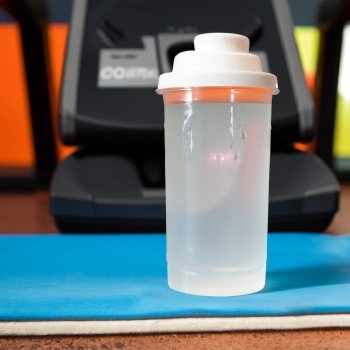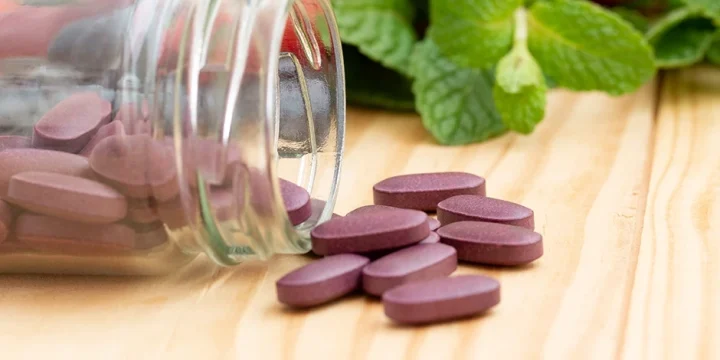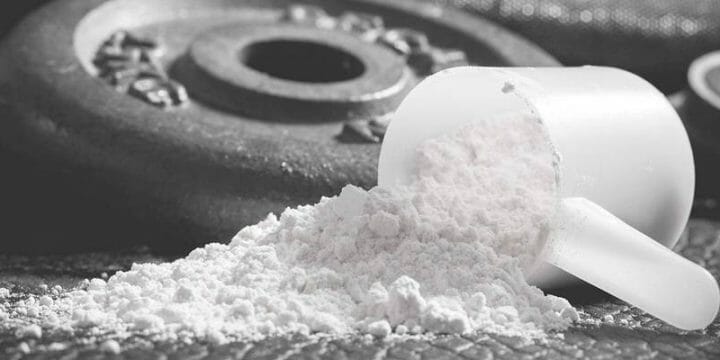Is it possible for your pre-workout routine supplement to negatively impact the health of your liver?
Over the years, I've had patients who rely on these products and raise concerns about their liver's well-being. This prompted me to delve deep into the research surrounding pre-workout supplements and their potential impact on liver health.
Keep reading and be surprised by how the combination of ingredients and dosage have an effect on your overall well-being.
Quick Summary
- Pre-workout supplements are generally not harmful to the liver when used according to the recommended dosages and without prohibited substances like anabolic steroids.
- It's crucial to choose pre-workout supplements that are third-party tested to ensure quality and safety.
- Studies have shown that certain pre-workout ingredients can cause liver damage, with one study finding liver injuries in a majority of 44 men using supplements containing undisclosed anabolic steroids.
- Personally, I believe moderation and informed choices are key to safely incorporating pre-workout supplements into a fitness regimen.
Pre-Workout and Its Effect on Liver

As a doctor, I advise caution when considering the use of any pre-workout supplements to prevent potential harm to the liver.
Generally, pre-workouts do not adversely affect liver health, particularly if you are in good physical condition, adhere to the recommended dosages, and avoid engaging in risky trends. Most individuals will likely experience no issues when following these guidelines.
I've seen a few gym buddies get overzealous with their pre-workout doses, chasing that extra 'edge.' Unfortunately, one of them ended up with elevated liver enzymes, a sobering reminder that more isn't always better. It's a lesson I share with everyone now: respect the dosage guidelines to avoid drug-induced liver injuries.
Here’s when you can suffer from a drug-induced liver injury:
- Proprietary blends — Many dietary supplements are proprietary blends, which means the manufacturer doesn’t disclose exactly what the supplement contains and in which quantities.
- Not FDA regulated — Dietary supplements aren’t FDA regulated, so you can’t know if they are safe or not.
This being said, you can choose a pre-workout supplement that’s been third-party tested to ensure a degree of quality.
"The FDA does not regulate herbal supplements as they do with medications. They will pull a supplement off the market but only after there have been complaints of side effects."
- Carol Denysschen, Chair of Health and Nutrition Dietetics at Buffalo State
Pre-Workout Drinks and Liver Damage: Scientific Data

As a doctor, I warn about the potential risk of drug-induced liver injury that can be associated with the use of certain pre-workout supplements. It's important to consider the impact that amino acid supplements can have on the health of your liver when using these products.
I also want to highlight that elevated levels of muscle enzymes could indicate liver damage resulting from pre-workout supplement use.
Study One
A study from Alimentary Pharmacology and Therapeutics tested 44 men who admitted to taking supplements to enhance their physical appearance.
The results found that many supplements they used contained anabolic steroids, which weren’t stated on the label. Blood tests discovered liver injuries in the majority of men [1].
Study Two
Another study from The American Journal of Gastroenterology, including a 24-year-old active-duty male, found he had acute liver injury after taking a supplement containing whey protein and creatinine.
Once he stopped taking the bodybuilding supplements, the liver chemistries started to improve on their own [2].
While there’s a lot of research available that says many supplements cause liver disease, it’s not always the case.
Study Three
Another study by the National Institute of Health (NIH) done on 44 males and females found that multi-ingredient pre-workout is safe.
The researchers did blood tests before and after the supplementation period and didn’t discover adverse effects on health of your liver [3].
Related article:
Supplement Ingredients and Liver Damage

Here’s which ingredients in bodybuilding supplements are and aren’t safe for your liver:
- Protein — This is the most widely used pre-workout as it helps build muscle. You'll be fine if you take it correctly and in small doses. But if you ingest too much protein, you’ll interfere with the liver and kidney function. A good rule is to stick to 50g of whey protein or 30g daily for six months.
- Dimethylamylamine Or (DMAA) — DMAA is seen as dangerous because it raises heart stress and blood pressure. Moreover, it can cause liver failure. Many supplements containing DMAA have been pulled from the shelves in the US, and manufacturers mostly use amino acids to mimic the DMAA effect.
- Niacin — Niacin helps during intense workouts and doesn’t have many side effects. However, if you take a high dose of Niacin, you’ll have elevated liver enzymes.
- Creatine — Is produced naturally in the body, but it’s also one of the most common ingredients of bodybuilding supplements. It gives a boost of energy and helps you work out for longer. The good news is that it won’t cause liver damage. However, it can cause kidney stress and dehydration if taken for too long. That’s why it’s best to use creatine in cycles.
Here is a list of pre-workouts with creatine that we tested and got approval for.
- Nitric oxide — Nitric oxide is a compound that improves blood flow by relaxing blood vessels. Pre-workouts have compounds that the body uses to create nitric oxides, such as L-arginine and L-citrulline. It can improve athletic performance, and the current research doesn’t indicate it causes liver damage, so this is a safe ingredient.
- BCAAs — Taking Branched-chain amino acids or BCAAs after a workout also increases muscle mass and eases muscle soreness. It’s found in dietary protein sources, so you don’t even need a workout supplement to get an adequate amount of BCAAs.
- Green tea extract — Green tea helps with metabolism increasing and aids in weight loss, but some research has found it can cause liver damage and liver injury.
Are Pre-workouts Safe?
Overall, men's pre-workout supplements are safe.
In my experience, pre-workouts can be a safe boost for your routine, as I've used them myself with no issues. But I've learned it's all about moderation and being mindful of how long you're using them. Stick to third-party tested brands and always follow the prescribed dose.
Additionally, it's imperative to steer clear of anabolic steroids, which are a primary culprit behind liver damage and various other health complications. As a physician, I must caution against the potential risks of drug-induced liver injury that may arise from the use of certain pre-workout supplements.
You should take supplements under medical supervision if you have existing medical issues. The doctor mentioned that elevated levels of muscle enzymes may indicate liver damage from pre-workout use.
If you’re on the lookout for safe and effective supplements, check out our round-up of the best organic pre-workouts formulated without artificial ingredients that might jeopardize your liver health.
Liver Health Supplements and Pre-Workout
Maintaining liver health is essential, especially when using pre-workout supplements, which can contain various ingredients that may stress the liver.
Some supplements are known to support liver health and could be taken alongside pre-workout supplements to mitigate potential negative effects.
- Milk Thistle: Milk thistle contains a compound called silymarin, known for its hepatoprotective properties. It can help protect the liver from damage caused by toxins and oxidative stress, potentially offsetting any liver stress from pre-workout supplements.
- N-Acetyl Cysteine (NAC): NAC is a precursor to glutathione, a powerful antioxidant produced by the liver. It can support the liver's detoxification processes and reduce oxidative stress, potentially mitigating damage caused by pre-workout supplement ingredients.
- Turmeric/Curcumin: Curcumin has anti-inflammatory and antioxidant properties, potentially benefiting liver health. It may help counteract inflammation caused by strenuous workouts and pre-workout ingredients.
- Dandelion Root: Dandelion root is thought to support liver and kidney function, aiding in detoxification processes. It may help the liver process any potentially harmful substances from pre-workout supplements.
FAQs
Is Taking Pre-Workout Every Day Bad Long-Term?
Taking pre-workout every day isn't bad long-term as long as you’re a healthy person. It can help you build muscle or lose weight as long as you use it as prescribed.
Can Creatine Mess Up Your Liver?
Current data says creatine can’t mess up your liver as long as you use it in cycles.
Is Protein Powder Bad For The Liver?
No, protein powder isn’t bad for the liver as long as your liver is healthy and free of damage.
Are Protein Shakes Ok For Fatty Liver?
Yes, protein shakes can be ok for fatty liver. Soy and whey protein can reduce fat buildup in the liver.
Can Pre-Workout Damage Your Kidneys?
Yes, pre-workout can damage your kidneys. However, this only happens if you have prior health issues, consume unsafe pre-workouts, or consume the supplement in incorrect doses and too frequently. The doctor mentioned that elevated levels of muscle enzymes may indicate liver damage from pre-workout use.
References:
- https://onlinelibrary.wiley.com/doi/full/10.1111/apt.15211
- https://journals.lww.com/ajg/fulltext/2020/10001/s2600_pre_workout_peril_
- https://www.ncbi.nlm.nih.gov/pmc/articles/PMC4471216/
About The Author
You May Also Like






